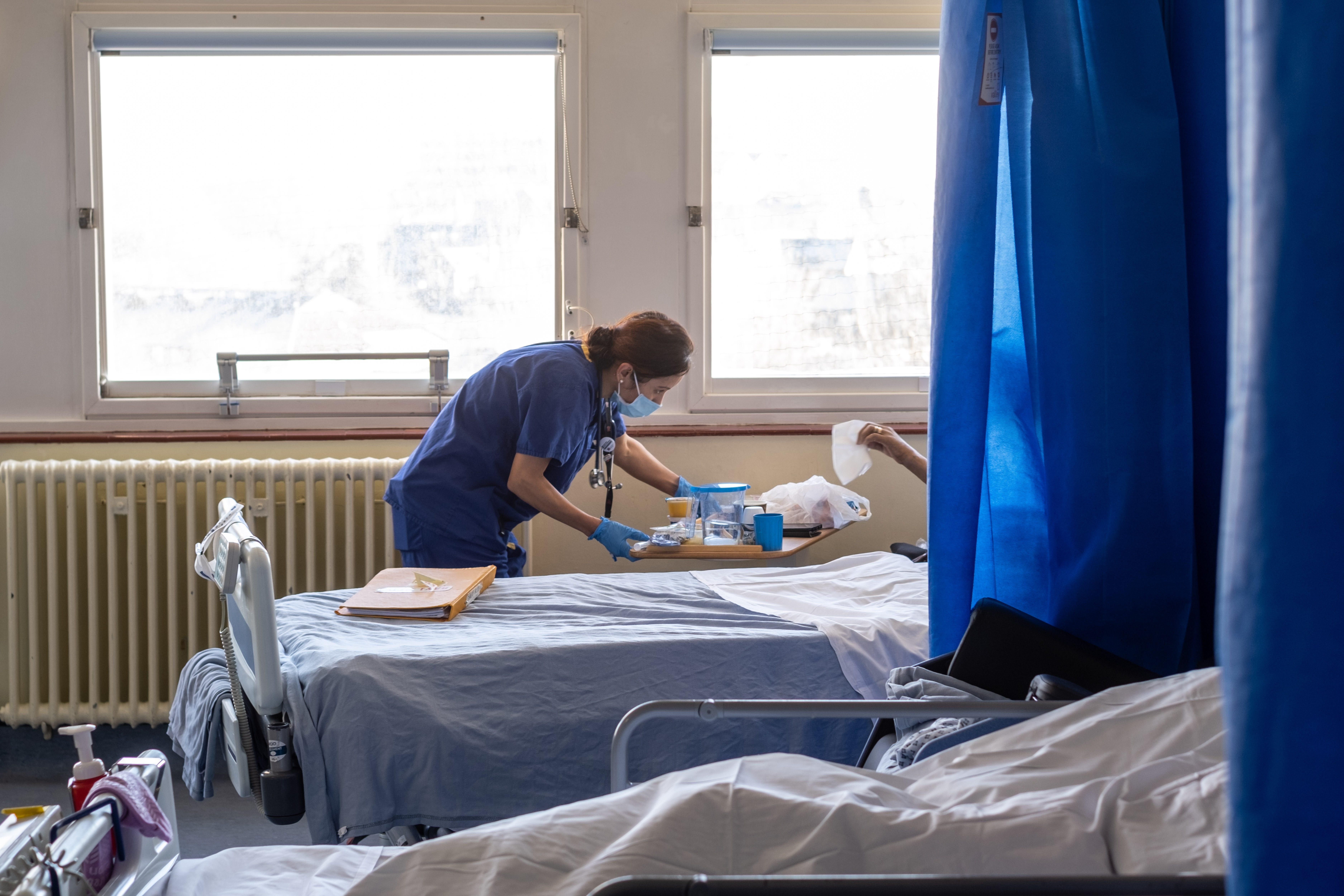A new analysis has revealed that cancer death rates in the UK have fallen by more than a fifth since the early 1970s, however diagnoses are also on the rise.
A report by Cancer Research UK indicates that although individuals are more likely to develop cancer compared to previous decades, they are less likely to die from it.
The data shows that the cancer death rate has decreased by approximately 22 per cent since the early 1970s, falling from 328 per 100,000 people in 1973 to around 252 per 100,000 in 2023. This decline is attributed to advancements in diagnosis and treatment, as well as initiatives to reduce smoking.
However, the rate of cancer diagnoses has increased by almost half (47 per cent) across Great Britain during the same period, rising from approximately 413 cases per 100,000 people to around 607 cases per 100,000 people.
The study noted that "survival for all cancers combined in England and Wales has doubled since the early 1970s, but progress has slowed over the last 10 years and remains lower than other comparable countries," also stating that "survival increased three to five times faster in previous decades, compared with the improvement since 2010."
Michelle Mitchell, Cancer Research UK’s chief executive, said the findings show “it is a time of both optimism and realism,” adding that it is also “a golden age for cancer research.”
The group’s report cautions that, despite improvements in overall survival rates, the number of people being diagnosed with cancer has significantly increased compared to 50 years ago.
Researchers identified smoking as the leading preventable cause of cancer, with obesity linked to 13 different types of the disease.
Other risks include not using sunscreen or failing to cover up in the sun, sunbeds, alcohol, lack of exercise and diets high in processed meat.
The report pointed out that around half of all new cancer diagnoses are in people aged 70 and over, but incidence rates are currently rising fastest in younger people.
It said: “In the UK, cancer incidence rates have increased by 23 per cent in people aged 20 to 49 since the early 1990s.
“However, population growth is concentrated in older age groups, so in terms of patient numbers, the biggest increase in cancer cases has been in older people.”
The study also found that, on average, just over half of cancers are diagnosed at an early stage in England (54 per cent), and this proportion has not changed for almost a decade.

Ms Mitchell said: “It’s fantastic to see that thanks to research, cancer death rates have drastically reduced over the last 50 years, and survival has doubled.
“However, there’s more that can be done. This report highlights that over 460 people die from cancer every single day in the UK, and too many cases are diagnosed at a late stage.
“If we want to change that, we need bold action from the UK Government.
“The upcoming National Cancer Plan for England must improve cancer survival, and transform cancer services.
“If this plan is done right, it could save countless lives across England and ensure people affected by cancer live longer, better lives.”
Cancer Research UK is calling for commitments such as the national rollout of a targeted lung cancer screening programme, quicker access to diagnostic tests for all patients, better access to GPs for speedy diagnosis and action to improve cancer waiting times.
Its new study is the first ever to include 50 years of cancer death and incidence data for the UK.
Elsewhere, MPs and members of the House of Lords have urged the Government to prioritise faster diagnosis of less survivable cancers, which are those that develop in the brain, pancreas, liver, lung, oesophagus and stomach.

A new report from the All-Party Parliamentary Group (APPG) on Less Survivable Cancers claims these cancers claim 67,000 lives a year, around 42 per cent of cancer deaths.
Doubling diagnoses rates in these areas could save an additional 7,500 lives a year, it said.
Paulette Hamilton, chairwoman of the APPG on Less Survivable Cancers, said this is a “crucial moment for transforming patient outcomes and accelerating survival rates for the less survivable cancers”.
“We’re on the brink of research breakthroughs and in the midst of developing potentially game-changing Government health reforms,” she added. “In this backdrop, achieving faster diagnosis for these devastating cancers is finally within reach.”
Professor Peter Johnson, NHS national clinical director for cancer, said: “The NHS is seeing and treating record numbers of people for cancer, with more people diagnosed at an earlier stage than ever before, and survival rates in England at an all-time high.
“We have developed world-leading programmes, including lung cancer screening in convenient locations such as car parks and using AI to spot skin cancer, making it easier than ever before to get checked.
“The latest data shows that more than three quarters of people received the all-clear or a definitive cancer diagnosis within four weeks of an NHS urgent cancer referral.”
Paramedic told suicidal student he couldn’t wait to have sex with her
Drinking coffee helps women age better, landmark 30-year study finds
Have your say: Is Ozempic fueling a new era of body image pressure?
Cancer death rates down more than 20% in last 50 years but cases rising – report
Eating this kind of bread can raise colon cancer patients’ risk of death
Meet the MIND diet: With some claiming it can keep your brain strong







